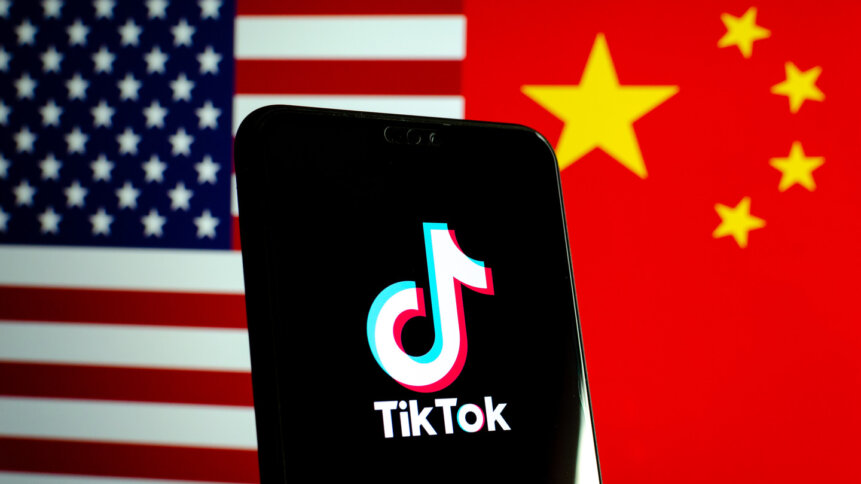TikTok Really Just Not That Into US User Data

TikTok is a social media platform not controlled by US billionaires. It’s important to remember that, because right now, we live in a world of multiple overlapping data realities.
On the one hand, the US and China are absolutely mired in an increasingly bitter and petty data war – they each accuse the other of sending cyberspies and cyberattacks after each other’s citizens, organizations and governments, for the very logical reason that they’re both sending cyberspies and cyberattacks after each other’s citizens, organizations and governments.
And on the other hand, the US government, and particularly its legislative branch, appears convinced that its citizens live in a walled city on a hill, where their data can or should never be subject to the barbarisms that govern the social media bargain in the rest of the world.
Social Media Platforms Access Data. Period.
The bargain of course is that if you post on social media platforms, the platforms will have, and can use, your data. There are limits to what the platforms can do with your data, absolutely, but they can have it, and use it within the strictures of what is probably an incomplete and ultimately insufficient patchwork of data privacy law.
That became an issue again this week, when no less a body than the Senate Homeland Security Committee requested that the still rapidly expanding TikTok platform that it would not let US user data “flow to China.”
This is what we mean by the competing data realities of what might be described as virtualpolitik. Data from social media platforms flows to the platforms, not uniquely to nations, and not uniquely from the locations in which the content creators exist. Social media in many active senses makes a lunacy of geography and its boundaries – as, come to that, do the likes of cloud technology, and arguably the internet itself.
Realpolik Vs. Virtualpolitik
Essentially, the Committee is trying to treat cyberspace as though it exists within the boundaries of hard political geographies, which is not an accurate picture of the way data flows work, either on the internet or on social media specifically. It also feels significantly like a case of US lawmakers claiming special pleading simply because it’s American data that it believes will be flowing “to China.” China is something of a special case in that there’s a law in that country that compels companies to share information requested by the government, as opposed to the more mercantile persuasions that could be said to operate in the West.
TikTok is owned by ByteDance, a Chinese company, created by Zhang Yiming, with headquarters in Beijing. And the US is loath to trust a Chinese social media platform with US users’ data in case there are data breach or security concerns that it cannot control or directly mitigate by law.
First Cast The Beam Out Of Thine Own Eye
This becomes intensely ironic – and telling – the moment we look at the data breach and privacy record of some “American” net giants. Instagram (owned by Meta) was recently fined in Europe to the tune of $400 million for allowing the data of children and young teens to be shown on their profiles. Google just lost its appeal against a $4 billion fine in Europe (admittedly for breaking anti-trust rules, rather than privacy regulations). Amazon has been hit with an almost $900 million fine for violation of Europe’s data privacy laws. Facebook finds itself fighting both class action suits over its misuse and dubious collection of users’ medical data, and international opposition from children’s charities for its plans to add end-to-end encryption to Messenger, a move which has been described as a child abuser’s shield.
All of these highly significant fines, legal cases and voices of opposition have been levied, brought, and raised, simply on the basis of the companies who hold the data doing unscrupulous or illegal things with it. There has never been a call from the European Union to Instagram, for instance, to ensure that European users’ data never “flows to the US,” despite the litany of European rule-breaking of American social media platforms over recent years.
The Individual Data Recklessness of Platforms
That’s because there’s a common understanding that Western companies are not agents of the state, and that when they are reckless with user data, it’s entirely on their own backs – and because Europe has a grimly tough raft of data privacy regulations called the General Data Protection Regulation or GDPR, so doing business in those regions means companies have to follow those rules, irrespective of where the companies are based or who owns them.
The fact that the US doesn’t have a similarly strong data privacy regime is neither TikTok’s fault, nor China’s.
Which is likely to be the reason why instead TikTok Chief Operating Officer Vanessa Pappas demurred when faced with the unusually specific request for a guarantee of US users’ data security.
Satisfying All National Security Concerns
“Will TikTok commit to cutting off all data and data flows to China, China-based TikTok employees, ByteDance employees, or any other party in China that might have the capability to access information on US users?” Sen. Rob Portman (Republican, Ohio) asked.
COO Vanessa Pappas repeatedly declined to give such a commitment, instead promising that the outcome of the company’s ongoing negotiations with the US government “will satisfy all national security concerns.”
She should perhaps have said “all legitimate national security concerns.” Because the current bipartisan fears in the US Senate make very little legitimate sense. The fears have at their base the Chinese law that compels companies to share information requested by the government. The fear itself though is that US user data could be used either to find potential targets, potential agents, or potential pro-China influencers for future mis- or disinformation campaigns.
On TikTok.
Anti-Social Media
This, it’s worth remembering, is a fear that comes to a world in which entirely fictitious AI influencers are swaying the hearts, minds, and dysmorphic body images of young women all across South Korea. Where AI rappers are a thing that exists. And where, above all, US-based social media platforms allow Holocaust denial groups, conspiracy theory groups, groups that practice extreme religious and racial intolerance, the Tea Party, QAnon, and the believers of the insurrectionist narrative of the “Stolen” 2020 US election to flourish and organize.
Fears about Chinese influence on TikTok in future mis- or disinformation campaigns? Data-physician, heal thyself.










